UPRONA members are called on to vote “yes” in the upcoming constitutional referendum. The decision was taken on Saturday, April 21 at the end of a regular session of the Central Committee. Olivier Nkurunziza, Secretary General of the party, assures that this instruction is in line with the spirit of the Arusha Agreement. False, says Tatien Sibomana.
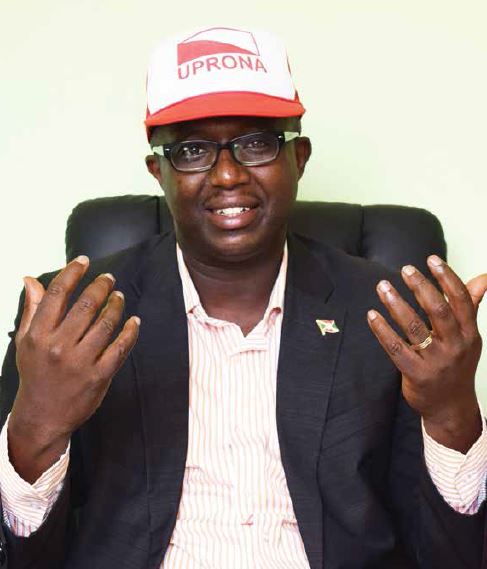
Olivier Nkurunziza: “Those who say the current Burundi President intends to run for another term are afraid of him.”
“UPRONA party stays true to the spirit of the Arusha Accord although the latter does not imply all the content of the text, “says Olivier Nkurunziza.
The ethnic quotas in the draft Constitution to be submitted to the referendum are maintained as they were decided in Arusha: 60% of Hutu and 40% of Tutsi in the National Assembly and each of the two is represented in the Senate at 50%, and so on.
As for the vote of the laws by simple majority, he reassures saying that this amendment was motivated by the blocking of such texts in Parliament.
According to the Secretary General of UPRONA, minorities should not worry. The safeguards were not lifted in the draft Constitution. “We wanted to maintain ¾ votes for the passing of the organic laws.” What matters most, he explains, is that the quorum for the holding of a session has been maintained at 2/3 Members of Parliament. He says the context differs from that of the year 2000. He mentions the establishment of the National Council for Unity and Reconciliation as well as the National Observatory for the Prevention and Eradication of Genocide, War Crimes and Human Rights and other crimes against humanity.
Moreover, the composition of the Senate in charge of the appreciation of the suppression or not of the ethnic quotas in the basic law is equal. This structure also constitutes a guarantee of the ethnic minorities’ protection. The Burundian conflict, he says, remains politico-ethnic: “The danger to the Tutsi from UPRONA will also be the same to those from the ruling party.”
Term limit?
Olivier Nkurunziza believes that the limitation of terms is appropriate in the project of the Constitution. “No one can serve more than two consecutive terms,” reads Article 97.
As a remainder, Article 96 of the current Constitution stipulates that “the President of the Republic is elected by direct universal suffrage for a term of five years renewable once “.
This project brings an opportunity to get back to business. It is an incentive to work alternately. “In our country, one is president for 10 years after which they still have an ambition to become president again, what makes some to attempt to not pass on the torch. “But if a president has opportunities to get elected, he can hand over power. Alternation will no longer be an obstacle to a possible candidacy “.
Olivier Nkurunziza sweeps aside for the moment the hypothesis of a candidacy of President Nkurunziza. “If he is to stand as president in the next election, the party will express its position. Confirming that today would be anticipating,” he said:” Those who say he will run for another term in office are afraid of him. UPRONA is ready to compete with any person whose candidacy will respect the law. ”
Tatien Sibomana, a member of UPRONA party of Amizero y’Abarundi coalition, said he was taken aback by what was said in the above statements. The instruction given isn’t in line with the spirit of the Arusha Agreement. The visa of the agreement has been pruned in the draft of Constitution.
The leaders of Ku Mugumya (UPRONA party headquarters) betrayed the Badasigana (member of UPONA party). Their decision shows that they do not measure the role the party played in signing the Arusha Agreement and above all, the role that must be played in its effective implementation”.
“If Olivier Nkurunziza believes that their instruction is in the spirit of the Arusha Agreement, he does not know what its spirit is. The latter is reflected in the obligation to involve ethnic minorities, cultural, etc., in the management of state affairs.
For him, a Constitution that will allow a party that has won the legislative elections with 51% to pass laws as it sees fit in Parliament will have nothing of the spirit of the Arusha Agreement. “Does this guarantee the respect and protection of ethnic and political minorities? What about the fate of the remaining 49%? ”
“National Intelligence Services beyond the control of Parliament”
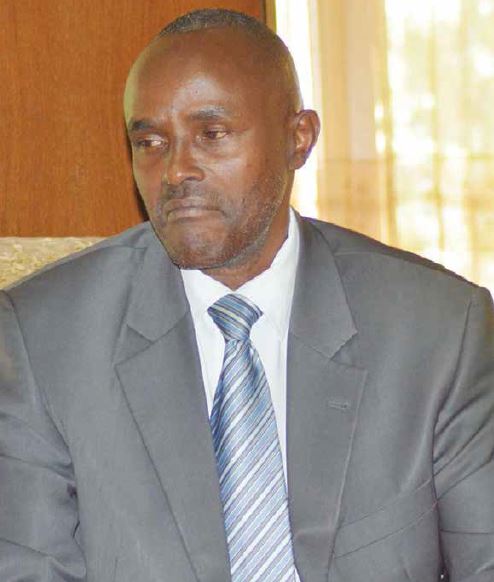
Tatien Sibomana: “They do not measure the role that the party played for the signing of the Arusha Agreement.”
The draft constitution to be submitted to the popular vote, he continues, deprives the upper chamber of Parliament of a prerogative. Article 289 requires it to evaluate within five years whether or not to end ethnic quotas in the executive, the legislature and the judiciary. “It is a constitutional obligation to do so after the establishment of the institutions of the new Constitution.” He recalls that it is not stipulated as such in the Arusha Agreement. “It is the Senate that appreciates on its own when it is necessary to make this assessment.”
In addition, this lawyer notes a contradiction in the consideration of quotas. “They are not respected where they must strictly be respected.” On the other hand, the authorities impose them for technical positions. “The tendency is so much institutionalization that even NGOs are asked to take it into account in recruitment. Is this not a flagrant violation of the spirit of the Arusha Agreement? ”
Concerning the limitation of the number of terms, Tatien Sibomana does not beat around the bush: “The spirit of the Arusha Agreement has been violated since 2015. It is mentioned in this agreement that no one can exceed two five-year terms each. ”
He regretted that the draft Constitution detached the National Intelligence Services (SNR) from the other Defense and Security Forces. Thus, it escapes the control of Parliament.
Mr. Sibomana notes that there are many elements contrary to the spirit of the Arusha Agreement. The Vice-President of the Republic and the members of the Government will be appointed and dismissed at the pleasure of the Head of State “without the cooperation of their original parties”. More seriously, he says, the vice-president will have no constitutional attribution, and so on.
Each of the two Vice-Presidents of the Republic has a set of specifications as stipulated in the Constitution.
Written by Egide Nikiza and translated by Pierre Emmanuel Ngendakumana

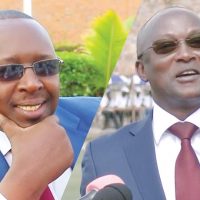
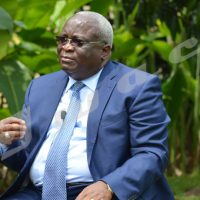

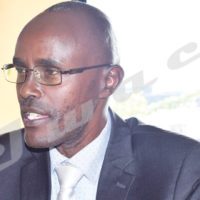
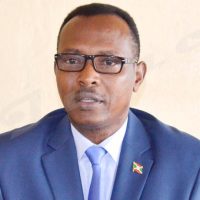













 IWACU Open Data
IWACU Open Data

